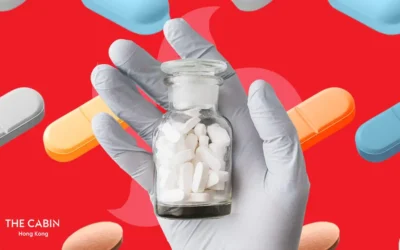We all had those days that were so long and hard. We just wanted to go home and get a glass of hard liquor to make us forget all the stress.
Behavior like this is highly normalized in our culture and, at times, even encouraged. There are serious repercussions when alcohol is used as a general remedy and a coping mechanism. Long term, this type of behavior isn’t just unhealthy.
It’s also dangerous. In the rest of this article, we’ll tell you how to stop using alcohol as a coping mechanism and give you some ideas for healthy means you should try instead!

What are Coping Mechanisms?
A coping mechanism enables a person to manage a challenging situation. All coping strategies offer the user a genuine or perceived advantage, but some have more unfavorable side effects than others. Unfortunately, alcohol is a coping method whose short-term benefits are frequently exceeded by its long-term detrimental impacts on relationships and health and its increasing dependence and poor decision-making under the influence.
Usually, people drink to deal with complicated feelings, challenging life events, stress, insomnia, PTSD, and even boredom and feelings of isolation from their partner, friends, or family.
Why Do People Use Alcohol as a Coping Mechanism?
Most people who use alcohol as a coping mechanism want to feel like they can escape, get some respite, or have permission to unwind. On the surface, this activity appears harmless. But using alcohol as a coping mechanism rarely works. Drinking alcohol only numbs the feeling of worry, depression, or shame without ever addressing or dealing with them. Additionally, alcohol can amplify unpleasant emotions and exacerbate coexisting illnesses like depression. Even if people are aware of this, it’s simple to fall back on what they know can momentarily ease the discomfort or calm the negative mood that may be overwhelming them.
It may not raise an eyebrow when people unwind after a long week with a glass of wine or binge drink on weekends to escape the world’s cares. When you consider that, it’s no surprise there’s an apparent link between workaholism and alcoholism in our society. However, a much better strategy than drinking is confronting pressures head-on and discovering a healthy coping mechanism that consistently enriches and fulfills our lives. The use of alcohol as a coping mechanism is not shameful. It would be best if you kept that in mind while also being aware that there are much better options.
Alternative Coping Mechanisms
The best way to stop using alcohol as a coping mechanism is to exchange it for a healthier option. According to experts at thecabin.com and brightfuturestreatment.com, being aware of the problem is the first step, but replacing the negative mechanism with a positive one is much more challenging. Let’s look at the dangers of using alcohol as a coping mechanism and some potential positive coping mechanisms:
Dangers of Using Alcohol as a Coping Mechanism
One of the biggest dangers of using alcohol as a coping mechanism is addiction. The more and for longer a person drinks, the greater their tolerance for alcohol becomes. After a while, you might need more alcohol to get the same effect. Alcoholism can lead to physical dependence to the point where a person is so dependent on it that being without it causes them to experience withdrawal symptoms like trembling, sweating, insomnia, migraines, and more. In extreme circumstances, alcohol withdrawal can even be lethal.
Physical consequences are another danger. For example, after a night of drinking, it wouldn’t be unexpected to experience an intense hangover at work, which can influence your productivity. Also, consuming alcohol can have severe consequences for your liver and pancreas.
Drinking alcohol as a coping strategy frequently has adverse effects on relationships. At best, it tends to drive a wedge between close relationships. At worst, it might fuel relationship irresponsibility, hostility, and fury.
Talking It Out
Speaking with dependable friends, coworkers, and family members can be beneficial. Talking may help you feel less alienated or alone when you keep things to yourself. Being vulnerable in this way requires some strength, which is challenging for those in recovery.
Because of this, picking a trustworthy person is crucial. However, the point of talking to a friend isn’t to ask for a solution to your problem. Instead, the point is to let out your frustrations and feel heard. We feel happier, secure, and more at peace when we feel connected and heard, and when we feel supported, difficult situations become easier to handle.
Journaling
Journaling can be your best friend when you can’t find a friend to vent to or afford a therapist to talk to regularly. Writing your feelings down is a great way to process them. Also, when you have words written down, you can always go back to them and check if you see any progress.
Exercise
Exercise releases endorphins, which relieve stress, regulate moods, boost self-esteem, and enhance sleep patterns. As such, exercise is the best stress-reduction strategy and can help with desire control and relapse prevention. Of course, you don’t have to exercise every day to feel these benefits. Start exercising a few times weekly, and then see how you feel. You might be surprised to know exactly how good you’ll feel after an intense workout.
Final Thoughts
Using alcohol as a coping mechanism is all too common in our society. However, it poses a real danger, especially to those more prone to addictions. So, the best way to stop using alcohol as a coping mechanism is to exchange it for something more productive, like exercise, conversation, and meditation. In the end, finding a community of like-minded individuals going through a similar thing could help you understand the gravity of the situation. Similarly, in today’s world, plenty of apps can help you stop drinking by monitoring your behavior and inspiring you to quit.
At The Cabin Hong Kong, our professionals are specially trained to treat alcohol addiction. We can also connect you with recovery fellowships in your area with others who are struggling with the same issues. Contact us today to find out how we can help.



